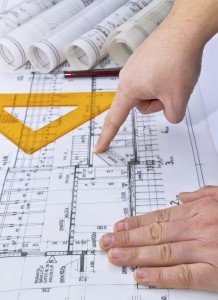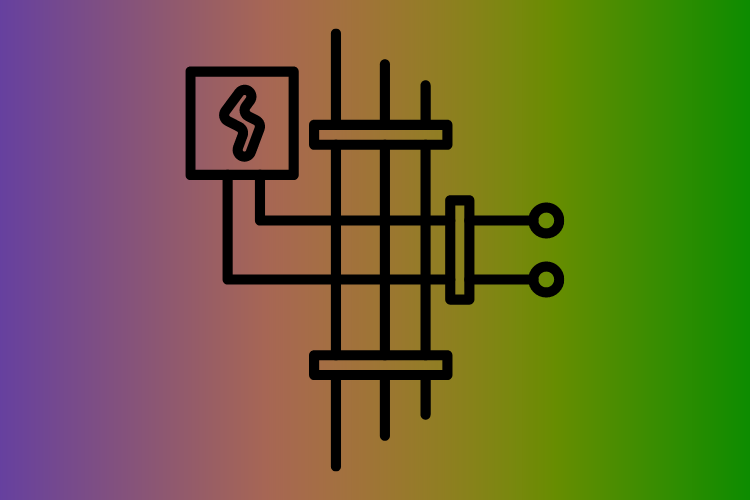Guide To Planning Permission and Building Regulations Relating To Electrical Works
Considering carrying out electrical works to your property?
Here is a handy guide regarding building regulations and planning permission with regards to electrical home improvement work.
Planning Permission Relating To Electrical Works
Installing or replacing electrical circuits to your home is not normally subject to planning permission requirements.
However, if your home is a listed building or is in a listed or protected area you would be wise to contact your local building control or planning authority office to check whether there are any permissions required before proceeding with your electrical work.
Electrical Work To Homes In England And Wales
When carrying out electrical work to your property you now need to ensure you follow these guidelines:
Ensure that the electrical work you have carried out is performed by an electrical installer who is registered with a competent person scheme.
This does not normally apply to replacement works such as electrical repairs, changing existing sockets or light switches or alterations to existing lighting or power sockets.
This DOES APPLY to all electrical works carried out in bathroom areas, kitchen areas or gardens (exterior areas).
All works carried out to these areas should be carried out by a competent person in accordance with Part P of the Building Regulations Document
The installer who carries out your work in accordance with a competent persons scheme should provide you with a certificate called an Electrical Installation Certificate.
This shows that the work was carried out to a safe standard.
Always ask electricians who carry out electrical work on your home which Competent Person Scheme they belong to and for evidence of their membership number.
In this way, you will be able to check that they truly are competent to carry out your electrical work.
Minor Electrical Works
Certain minor works are allowed under the terms of the Building Regulations relating to electrical works.
These works do not normally have to be notified to building control.
These normally do not have to be carried out by a registered electrician.
It is often wiser to use the services of an expert contractor (in this case a qualified electrician) whenever carrying out home improvements or property renovations.
The list of minor works which normally do not require building regulation notification and can be carried out without the services of a registered electrician is made up of the following:
Electrical maintenance or repair work.
- Installation of low voltage cable for items such as fire alarms, burglar alarms, telephone sockets, etc.
- Replacing an existing electrical point or electrical fitting, light switches and electrical sockets (existing).
- Adding fused spurs to existing appliances
- Areas listed above, e.g. bathrooms, kitchens and gardens (exterior areas) do not apply to this and must be carried out by a registered competent person.
- Bonding installation or upgrades.

Competent Person Schemes
Organisations involved in the competent persons scheme include the following:
- NAPIT
- CORGI
- NICEIC
If In Doubt?
If in doubt about any electrical works it is always wise to seek advice from a formal body or building control.
Top Tradespeople do not accept any responsibility for the accuracy of this information and professional advice should always be sought if in doubt prior to commencing any home improvement projects.
Working With Electrics In Kitchens And Bathrooms
When you are getting electrical work done in the bathroom, it is important to understand the implications of the Part P of the Building Regulations.
If a homeowner is getting electrical work done in the bathroom, they must comply with Part P by either using a Competent Persons Scheme electrician, or by submitting a Building Regulations application to the Local Authority.
However, in most cases the simplest and most economical method of accomplishing this is to have the electrical installation work performed by a qualified electrician registered with an authorized Part P Competent Person Scheme.
If you use this method, the electrician will not only perform and test the electrical work, but also notify the appropriate authorities.
If you choose a different method, you will still have to pay to have the electrical work to be inspected.
It is often much less expensive to just have a Competent Person perform the entire electricians job.
Electricians - What is a Competent Person?
The term "Competent Person" refers to a firm that has been approved by one of the Part P schemes approved by the government as being competent to self-certify that any electrical work performed complies with the Building Regulations.
Part P was introduced to reduce the number of fires, injuries and deaths caused by electrical installations that were performed in a faulty fashion.
There are several advantages to using a "Competent Person".
For example, you will have the option of taking out an insurance-backed guarantee for the work that is being performed, you won't have to pay Building Control charges, and if you are not happy with the work that was performed, you will have access to a formal complaint procedure.
Electricians - Electrics in the Bathroom
For the purpose of wiring regulations, the bathroom is divided into zones that range from Zone 0, which is the wettest, which is an area that actually can hold water, such as the interior of the bath or shower, to Zone 2. Electrical
equipment is rated in regards to its level of mechanical and moisture protection.
If the equipment doesn't an an IP number, it cannot be used in these zones, or anywhere else that has a wet or damp environment, for that matter.
Some of the typical bathroom electrical items that have these IP numbers include lighting, heaters, extractor fans, shower pumps, and electrical shower units.
Electricians - Electricians and Electric Showers
If you are planning to install an electric shower, which is installed as a wall unit using an electric element to heat the water, it is advisable to have this work done by an electrician registered with an authorized Part P Competent Person Scheme.
While electric showers are quite popular and convenient, they can be dangerous if they are installed incorrectly. There are regulations about electric showers and their installation that are simply best handled by an electrician.
The installation for these units varies, depending on the model that is being installed, so an electrician will not only be aware of the proper method, but also knowledgeable concerning the regulations about electric showers and their installation.
If you need a qualified electrician you can use our 'COMPARE TRADESMEN' form above to post a job and get no-obligation quotes from local electrical contractors near you.
Why not compare quotes from bathroom fitters for works such as these:
- Bathroom suite fitting services
- Toilets fitting
- Sinks fitted
- Shower enclosures fitted
- Bathroom refurbishments and renovations
- Bathroom design services
Working With Electrics In Kitchens And Bathrooms
When you are getting electrical work done in the bathroom, it is important to understand the implications of the Part P of the Building Regulations. If a homeowner is getting electrical work done in the bathroom, they must comply with Part P by either using a Competent Persons Scheme electrician, or by submitting a Building Regulations application to the Local Authority. However, in most cases the simplest and most economical method of accomplishing this is to have the electrical installation work performed by a qualified electrician registered with an authorized Part P Competent Person Scheme. If you use this method, the electrician will not only perform and test the electrical work, but also notify the appropriate authorities. If you choose a different method, you will still have to pay to have the electrical work to be inspected. It is often much less expensive to just have a Competent Person perform the entire electricians job.
Electricians - What is a Competent Person?
The term "Competent Person" refers to a firm that has been approved by one of the Part P schemes approved by the government as being competent to self-certify that any electrical work performed complies with the Building Regulations. Part P was introduced to reduce the number of fires, injuries and deaths caused by electrical installations that were performed in a faulty fashion. There are several advantages to using a "Competent Person". For example, you will have the option of taking out an insurance-backed guarantee for the work that is being performed, you won't have to pay Building Control charges, and if you are not happy with the work that was performed, you will have access to a formal complaint procedure.
Electricians - Electrics in the Bathroom
For the purpose of wiring regulations, the bathroom is divided into zones that range from Zone 0, which is the wettest, which is an area that actually can hold water, such as the interior of the bath or shower, to Zone 2. Electrical equipment is rated in regards to its level of mechanical and moisture protection. If the equipment doesn't an an IP number, it cannot be used in these zones, or anywhere else that has a wet or damp environment, for that matter. Some of the typical bathroom electrical items that have these IP numbers include lighting, heaters, extractor fans, shower pumps, and electrical shower units.
Electricians - Electricians and Electric Showers
If you are planning to install an electric shower, which is installed as a wall unit using an electric element to heat the water, it is advisable to have this work done by an electrician registered with an authorized Part P Competent Person Scheme. While electric showers are quite popular and convenient, they can be dangerous if they are installed incorrectly. There are regulations about electric showers and their installation that are simply best handled by an electrician. The installation for these units varies, depending on the model that is being installed, so an electrician will not only be aware of the proper method, but also knowledgeable concerning the regulations about electric showers and their installation.

